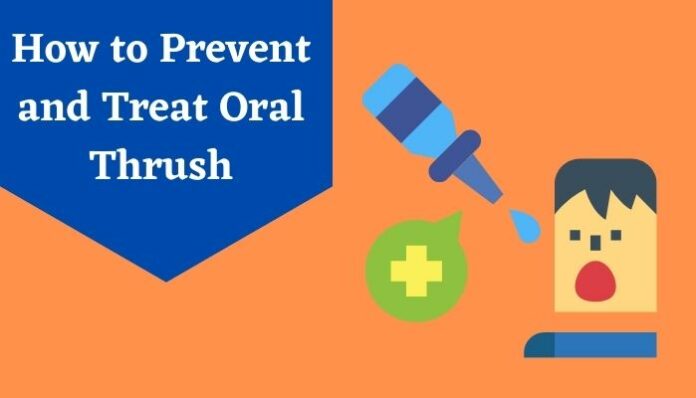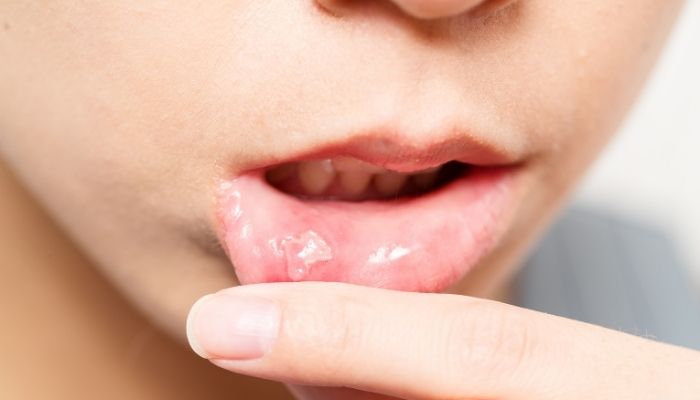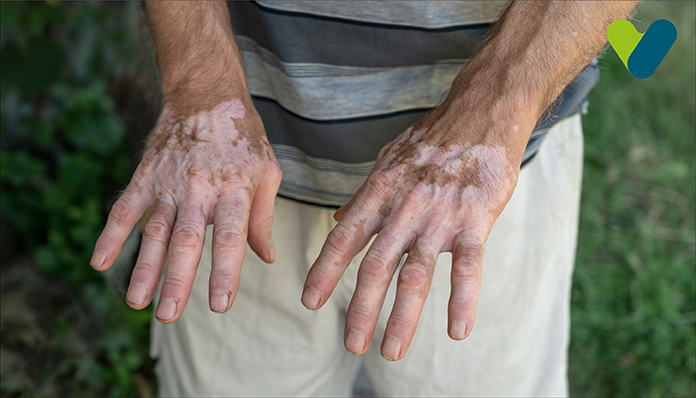Neelesh was a 35 years old man working in a multinational company in Hyderabad. He was fond of going out for get-togethers with family and friends. During one such party, he was finding it hard to eat his meal with his folks. The situation got worse and he experienced some white rashes in his mouth along with some soreness. He then consulted a doctor, who after a thorough diagnosis revealed that Neelesh is suffering from oral thrush.
Although usually found in babies and toddlers, oral thrush is a disease that can affect adults and anyone with weak immunity. It is a condition caused due to a lack of good bacteria in your mouth.
Let us dig deeper to understand in detail oral thrush symptoms and treatment for oral thrush in adults. At the same time, we will throw light on how to cure and prevent oral thrush with natural remedies?
What is Oral Thrush?
Oral Thrush is a condition where Candida Albicans fungus gets accumulated on the inner lining of the mouth. Also known as, Oral Candidiasis, mouth thrush is most likely to affect babies and elderly people, who have weaker immunity. Overgrowth of the candida organism results in thrush symptoms. In some cases, apart from Candida Albicans organism, thrush may occur due to other fungi too like Candida krusei, Candida Tropicalis, and Candida Glabrata.What are Oral Thrush Symptoms?
Identifying oral thrush symptoms helps in deciding the best treatment to get relief from the condition. At the same time, remember that in its initial stages, oral thrush may not show any symptoms, so understanding these become all the more important to prevent the infection from getting worse. Some of the common thrush symptoms are:- Dry and cracked skin at both the corners of the mouth
- Yellow or white patches in inner cheeks, gums, tonsils, lips, or tongue
- Bleeding from these patches if scraped
- Burning or soreness in the mouth
- Too much sensitivity in the mouth
- Difficulty to swallow food
- Loss of taste
- Constant bad taste in the mouth
Three Types of Oral Thrush
As per experts, oral thrush can be divided into three types based on their severity and appearance. These three types of oral thrush are:1. Hyperplastic Thrush: Also known as Nodular Candidiasis or Plaque-like Candidiasis, this type of mouth thrush is very rare and difficult to treat. It is mostly found in people with HIV infection.
2. Erythematous or Atrophic Thrush: In this second type of oral thrush, a person suffers from red-colored patches and not white or yellow patches at the corners of the mouth.
3. Pseudomembranous Thrush: In this type of oral thrush, the tongue of a person gets white or whitish-yellow plaques that look like cottage cheese.
What are the Causes of Mouth Thrush?
Now, let us throw some light on what causes mouth thrush? This is a yeast infection that is usually caused due to abnormal growth of Candida Albicans fungus in the mouth. You may not know but we have this fungus in the mouth but when it exceeds the normal range, it may result in a condition called oral thrush. The main underlying cause of oral or mouth thrush is the reduction in the number of good microorganisms in your body. Some of the main causes for mouth thrush are:- Antibiotics
- Steroid Medication
- Birth Control Pills
- Chemotherapy
- Radiation Therapy
- Weak Immunity
- Diabetes
- Leukemia
- HIV Infection
- Smoking
- Dry Mouth
- Dentures
Treatment for Oral Thrush in Adults
Listed below are some effective medications that form the part of treatments for oral thrush in adults:1. Amphotericin: Also known as AmBisome and Fungizone, it is a medicine used to treat severe oral thrush symptoms.
2. Clotrimazole: Also known as Mycelex Troche, it is an antifungal medicine that is easily available in the form of lozenge.
3. Itraconazole: Also known as Sporanox, it is an oral antifungal medicine used to treat oral thrush in people who are suffering from HIV infection.
4. Fluconazole: Also known as Diflucan, it is an oral antifungal medicine to treat oral thrush.
5. Nystatin: Also known as Nystop and Nyata, this one is an antifungal mouthwash that can be used to treat oral thrush in a baby.
Home Remedies to Cure Oral Thrush
Besides, the above-mentioned medications for oral thrush, you may consider trying the following home remedies that are completely safe and effective too:- Use saltwater as a mouthwash to prevent oral thrush
- Use a mixture of apple cider vinegar and water as a mouthwash but after that rinse your mouth several times with plain water to prevent enamel erosion due to apple cider
- Use a mixture of baking soda and water as a mouthwash for proper oral hygiene
- Use a soft-bristled toothbrush to avoid scraping the oral thrush patches in your mouth
- Use only doctor prescribed mouthwashes and sprays to prevent the disease from getting worse
- Make sure to replace your toothbrush after you get recovered from oral thrush and clean your dentures properly to avoid chances of reinfection
- Try consuming probiotic supplements to ensure a proper balance of good bacteria in your mouth
- Include low-fat yogurt in your diet to get good bacteria in your mouth as well as in your body
- Limit your sugar intake
- Try to quit smoking



